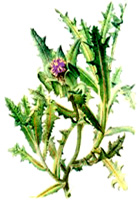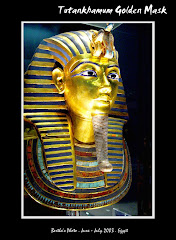By Huddler's Green Home Community
Posted Tue Jun 9, 2009 9:28am PDT
Related topics: How-To, Gardening, Nature, Cleaning, Tips More from Huddler's Green Home blog 481
votes
Buzz up!
Summer is the time for picnics, going to the beach, and barbecues. Unfortunately, it's also the time for indoor pests. Commercial pest control is full of nasty chemicals, even though there are natural ways to fight off many pests. Here are some ideas for ridding your home of creepy crawlies, without needing a hazmat suit (and of course, saving you some money).
Remember: The number one rule to keeping many bugs out is keeping the house clean. So don't let your dirty dishes pile up, make sure to sweep and vacuum, etc. Prevent any need for nontoxic pest control by using nontoxic household cleaners or even make your own homemade cleaners.
Ants

Vinegar can be used to destroy ant trails. Without clear trails, the ants will get confused and may stay outside for a while. You can use it diluted with water or straight. And, of course, vinegar is also a great household homemade cleaner, so not only do you get rid of the ants, you get some cleaning done too.
Cinnamon and black pepper are both increasingly being used in garden and indoor insect control. You can try dusting the outdoor nests with either of these spices. Cinnamon is more beneficial as a natural barrier to stop them from coming in -- it's most effective when you find the source of where the ants are coming in.
Add borax to sugar. Many people believe that you should use a 50-50 concentration, however, ultimately the goal is to have the ants bring borax back to their nests. Starting with a lower concentration such as 5% or 10% borax to sugar and gradually increasing it to 40%-50% will allow the ants to have more time to bring more back. The mixture should be placed where you see the ants or on the ant trails.
Baby powder or talcum powder is not appreciated by these bugs. The theory is if you dust the ants and the trail, they’ll stop coming.
Liquid soap diluted with water is an easy way to wipe out your pests while not harming your people. When used outside as a spray, you'll want to dilute the soap (such as Dr. Bronner's Organic Castile Soap) -- roughly 1 or 2 tablespoons per quart of water -- to kill the pests but not your plants.
Bay leaves, cloves, and cayenne pepper have long been used for ant control. Try putting one of these at their entry point, and in drawers, shelves, etc., where the ants are going, to prevent them from coming in.
Peppermint can be sprayed around your home's perimeter and at ant entry points. This will deter them from coming inside.
More resources: SimpleGiftsFarm.com, Sugar Ant Hotel from Care2.
Fruit flies

Clean up any ripe fruit droppings and take out the trash (or if you are a green superstar, your compost!) nightly for a few days -- fruit flies lay their eggs in overripe fruit.
Apple cider vinegar is a great natural way to get rid of fruit flies. Pour some into a glass, and place a paper funnel over the container. Fruit flies love the smell and will fly into the glass, but will not find their way back out the funnel (for 4 of 5 fruit flies...).
Leave a glass of cheap wine (apparently, fruit flies particularly like chardonnay) out. Mix a bit of detergent in it. The flies will sip on it and die shortly thereafter.
Make your own fly paper by boiling water, sugar, and corn syrup together. Spread the mixture on brown paper grocery bags and wait for the flies to stick.
Suck up flies through the back of an old hair dryer. The flies will go in the hot back end of the dryer and fry.
Basil deters fruit flies. Mix some basil oil with water and spray your kitchen.
Wasps

Make a trap from an old soda bottle to catch wasps. Using a 2-liter soda bottle, cut off the top 1/3 of the way down. Flip the top so that the bottle neck is facing down into the rest of the bottle. Tape or staple the bottle neck to the outside of the bottom piece so that it fits tight. Fill the bottle part way with soda or fruit juice. You could even line the top of the bottle with jam to help attract the wasps. Wasps will enter the bottle but will not be able to get out. Clean and refill the trap daily or as needed.
Remove the nest. If you find a hanging nest, wait until the wasps are less active (namely, at night). Carefully approach the nest. Put a cloth or plastic trash bag entirely over the next and quickly tie it off at the top. Remove the nest from wherever it is hanging, then submerge the bag under water and weigh it down with a rock.
More resources: EarthEasy, Get Rid of Things.
Slugs

Slugs can be a huge pest in any garden. They're fond of eating plants, shrubs, and mosses, much to any gardener's chagrin.
Fill small bowls with stale beer and place the bowls strategically in areas of the garden where the slugs are most active. Slugs apparently like stale beer, so they climb in to drink and they meet their maker (they drown in the liquid).
Other eco-friendly slug-fighting tactics include liquids that work similarly such as grape juice or a tea made from yeast, honey, and water.

